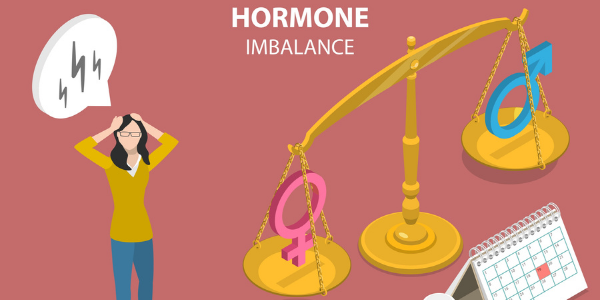Hormonal imbalances are known to cause a slew of problems. In addition to affecting your fertility, they can also cause sleep issues as you get older.
When your hormones are out of balance due to an underlying condition or simply as a natural part of aging, your sleep can be significantly impacted. In turn, this can lead to other health issues that can be distressing.
How Do Hormonal Imbalances Affect the Body?
There are a number of hormones the body produces. Each has a different function. As a result, when you have hormonal imbalances, it can adversely affect the body in a variety of ways. Many hormones can affect your sleep, in particular, and leave you feeling unrested and moody. The following hormones play a part in your ability to sleep and in your sleep quality:
As the body’s stress hormone, cortisol is essential in enabling your body to protect from real and perceived threats alike. This is known as your body’s fight-or-flight mechanism. If the body produces too little cortisol, it cannot regulate your circadian rhythm, which is responsible for sleep. Hormones can be affected by stress or issues such as daylight saving time, impacting your sleep.
Your thyroid is another important hormone that has the responsibility of regulating various bodily functions. If your thyroid has problems, it can prevent you from getting a good night’s sleep and reduce the number of hours you are able to sleep. Both hyperthyroidism and hypothyroidism can adversely affect your sleep.
When women have fertility issues and don’t produce adequate amounts of estrogen and progesterone or are going through perimenopause or menopause, it can affect their sleep. Sleep issues are very common when hormonal imbalances occur due to menopause. Where a woman might have previously experienced no issues with her sleep, she might suddenly find herself unable to fall asleep, awake for hours at a time and then extremely tired the following day. Hormone replacement therapy can help to regain that balance and allow for normal sleep again.
Men are also impacted by sleep issues when testosterone is low. Studies have shown that there is a relationship between the production of the male hormone and sleep problems. Testosterone replacement therapy can help.
Insulin is a hormone that helps to keep your blood glucose levels under control. When you have a problem with those levels, your sleep can be affected. For example, when your blood sugar is high, your sleep can suffer. In some cases, you can throw your insulin levels out of whack, such as if you snack on the wrong foods before bedtime. You might have trouble falling asleep or staying asleep once you do drift off.
Melatonin regulates your sleep cycles, which means if there is an imbalance of this hormone, it can lead to sleep problems. Your body naturally produces more melatonin after darkness while suppressing cortisol. If you engage in certain habits before bed such as watching too much TV or playing with your phone, your melatonin levels can be unbalanced. The same can happen if you work the night shift and sleep during the daytime.
What Can Happen with Too Little Sleep?

- Lower immunity
- Increased appetite
- Higher consumption of calories
- Higher risk of infections
- Weight gain
- Higher risk of illnesses
What Can You Do to Control Your Hormones?
In some cases, you can do your part to keep your hormones balanced so that you can have a restful night’s sleep. You can do the following:
- Limit screen use before bed: Instead of watching TV or using your phone before bed, read a book or play music.
- Reduce stress: Do something relaxing to reduce your stress before bed. You can try deep breathing exercises, meditation, yoga or anything that helps you to relax and ease your stress.
- Create a routine and stick with it: You should have a routine for before bed and bedtime. Set a bedtime and wake-up time and stick with it.
- Don’t eat past a certain time: Avoid eating anything before bedtime. You might want to stop eating anything two or three hours before bed daily. It can help improve your quality of sleep.
Natural hormonal imbalances can be corrected medically. You can do your part to regulate others and get good quality sleep daily.





